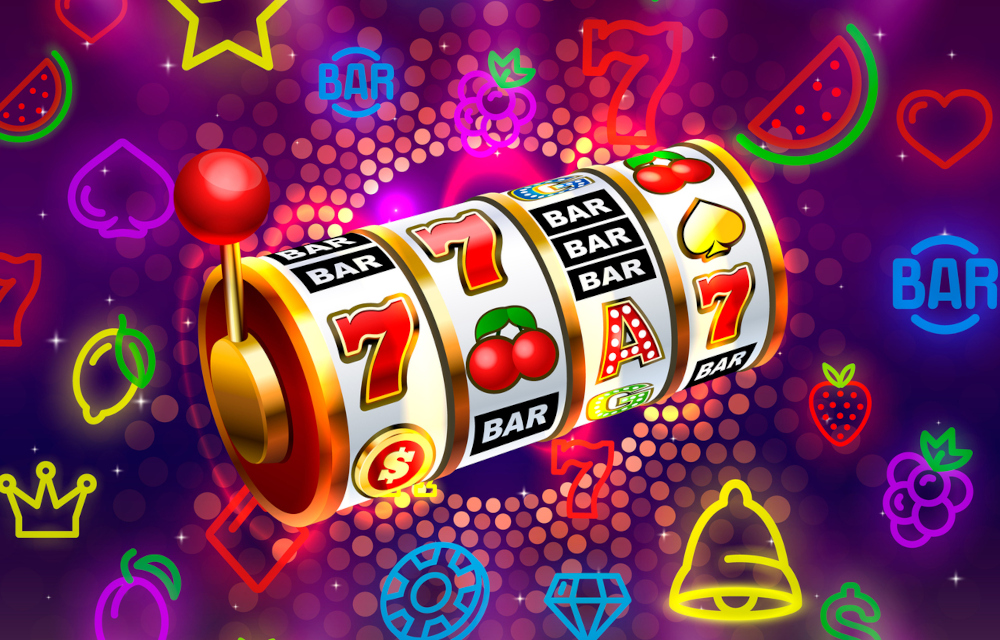- Hotel Green Palace Residential
- +8801782-689090
- info@hotelgreenpalaceresidential.com
Fair Gameplay Certification of Crash Duel X: RNG Testing Results
Is It Secure to Place at Bet365 Casino?
September 2, 2025Mostbet’s iOS Səhifəsi: İndi Online Kazino Oynamaq Uçun Mostbet’i Yükləyin!
September 2, 2025
You’re probably conscious of how crucial fairness is in rival gaming, especially with a game like Crash Duel X, where RNG plays a significant role. The recent Fair Play Certification process illuminates a light on the intrinsic mechanics of RNG and its testing results. Our analysis explores the measures taken to eliminate biases, ensuring fair play for all participants. But what exactly are these measures, and how do they impact your gaming encounter? Let’s uncover the details.
Key Takeaways
- RNG testing ensures fairness, validating Crash Duel X’s adherence to fair play criteria.
- Statistical analysis identified no biases, confirming randomness quality in Crash Duel X.
- Certification enhances game honesty, fostering player trust and market view.
- Continuous feedback refines RNG algorithms, promoting fair and unpredictable gameplay.
- Transparency in RNG mechanics enables players, enhancing satisfaction and control.
Understanding Random Number Generation in Gaming
When it pertains to gaming, especially in titles like Crash Duel X, comprehending random number generation (RNG) is essential to valuing how fair play is upheld. You’re probably aware that randomization mechanics support these games, creating variety and unpredictability. Examining the probability formulas employed allows you to see how these mechanics determine outcomes justly, ensuring no player’s experience is inequitably advantaged. In Crash Duel X, these formulas are crafted to promote balance, enhancing your gaming freedom while safeguarding competitive integrity. By scrutinizing the complex systems behind random occurrences, you grasp how they’re crafted not to hide fairness but to equalize the playing field. This insight into RNG enhances your appreciation for the intricate balance between chance and skill in your favorite games.
The Debate Over RNG in Competitive Play
Although RNG adds dynamism to gaming, it has sparked significant debate in the realm of competitive play. You’re probably conscious that gamers often argue about RNG fairness, particularly when it affects outcomes considerably. In competitive settings, maintaining competitive integrity is crucial; thus, the randomness factor can feel like it arbitrarily tilts the balance.
For some, this variability is a invigorating challenge. It hinders matches from being totally skill-dependent and brings a layer of calculated adaptability. However, a few argue it weakens pure skill judgment, allowing chance to triumph at crucial moments. Finding the correct balance, where RNG enhances rather than reduces the competitive experience, becomes necessary. You must consider RNG’s role thoughtfully to ensure it enhances skill without overshadowing it.
Crash Duel X: RNG Mechanics Analyzed
As you investigate into the RNG mechanics of Crash Duel X, it’s crucial to conduct a thorough analysis of how these elements function within the game. The center of your study is the impact of random outcomes on players’ gameplay experience. Crash Duel X includes RNG to deliver variability, making each gaming session distinct. This variability can either enhance or impede your strategy, offering both a challenge and a sense of freedom. Some mechanics rely heavily on RNG, influencing tactical decisions and overall satisfaction. However, the level of this uncertainty is carefully crafted to maintain balance, preventing discontent from overshadowing fun. The key is to comprehend how these components affect your control, thereby shaping your overall interaction in the game.
Methodology of RNG Evaluation for Crash Duel X
Analyzing how uncertainty in Crash Duel X affects player experience naturally leads us to a crucial aspect: the methodology employed in RNG testing. You aim for a comprehensive understanding of randomness regulation by deploying precise assessment techniques. Start by amassing data through extensive tests, ensuring results accurately mirror possible in-game scenarios. Next, orderly analyze randomness to spot any biases or trends that deviate from expected distribution. You apply statistical methods, such as chi-square tests, to verify randomness standard. Monitoring real-world gameplay adds further layers of diversity, making sure findings hold valid beyond simulations. Implement ongoing feedback loops to refine processes, enhancing both justice and randomness. Through thorough testing, Crash Duel X establishes clear criteria for fair play and reduces player frustration.
Insights From Industry Experts on Fair Play Certification
You should reflect on the viewpoints of industry experts who stress the significance of fair play certification in preserving game integrity. They often concentrate on the certification’s impact on player trust and market perception, assessing how an RNG fairness evaluation can influence these factors. Understanding these insights will provide a complete view of why fair play certification is essential for Crash Duel X.
Industry Expert Opinions
Exploring into the perspectives of industry experts reveals the detailed layers entangled in securing Fair Play Certification for Crash Duel X. Experts highlight the value of RNG clarity, making sure players comprehend how randomness affects the game. Clarity fosters faith, a vital aspect in crafting an setting where players feel both engaged and honored. Experts also point out the significance of player responses, noting it as a foundational tool for spotting potential justice issues. By proactively addressing problems, developers can adjust algorithms and gaming mechanics to better mirror a fair play benchmark. This connection between openness and input creates a dynamic, changing game space. As you investigate the certification method, acknowledge that expert knowledge guide improvements that align with players’ longing for autonomy and justice.
Certification Impact Analysis

Comprehending the implications of Equitable Play Certification for Crash Duel X offers important insights into how certification reshapes the gaming landscape. You’ll discover that accreditation processes are pivotal in improving game integrity, promoting trust among players who appreciate fair competition. By complying to rigorous standards, Crash Duel X ensures its audience that outcomes aren’t biased by external influences. Industry experts underscore how these processes remove out unethical practices, thus equalizing the playing field. Players enjoy a sense of autonomy knowing their skill primarily determines success. Analytical scrutiny into such certifications ensures ongoing vigilance against potential risks. As certification continues influencing the industry, it sets a precedent for others, reinforcing a commitment to transparent gaming environments. This, in turn, lures a discerning player base.
RNG Fairness Evaluation
While plunging into RNG equity evaluation, it becomes apparent that Fair Play Certification scrutinizes the random number generation processes crucial to games like Crash Duel X. You must consider how RNG algorithms reinforce game outcomes, ensuring they hit the right balance between predictability and luck. Industry experts evaluate these algorithms carefully against fairness standards, advocating for a system that allows freedom of play without prejudice. It’s crucial that each algorithm undergoes rigorous testing to ensure that no inherent edge exists for any player. By maintaining adherence to fairness standards, the industry promotes a reliable environment. Through detailed analysis, you’ll understand that Fair Play Certification not only approves RNG processes but also shields player interests, promoting equitable gameplay experiences.
Implications of RNG Certification for Players and Developers
With RNG certification in Crash Duel X, you improve player trust by ensuring that game outcomes are genuinely random and fair. This certification doesn’t just bolster game balance but also holds you, the developer, responsible for maintaining these standards. By embedding transparency into game mechanics, you create a foundation for player confidence and long-term engagement.
Enhancing Player Trust
Although the gaming landscape continually changes, the importance of player trust continues a constant. You seek confidence that Random Number Generator outcomes are fair and unbiased. By embracing player openness, developers can provide understanding about these algorithms, improving your confidence in gameplay integrity. Adopting trust metrics enables you to make knowledgeable decisions about the games you engage with. These metrics can reveal how reliably RNG operates, solidifying your relationship with the game. As developers commit in rigorous RNG certification, they cultivate an environment where you feel enabled and free to enjoy the game without uncertainty. This proactive approach not only strengthens player Crash Duel X trust but also establishes a example for industry standards, guaranteeing everyone’s gaming experience is equitable and satisfying.
Ensuring Game Balance
Building player trust is essential in ensuring game balance. When you realize that fair play certification affects game mechanics, you boost the experience for everyone. By proactively gathering and assessing player feedback, you can tackle concerns about random number generation https://www.theguardian.com/business/2018/nov/29/online-casinos-fined-14m-amid-watchdog-crackdown (RNG) and preserve a level playing field. Consider these three important areas:
- Randomization Consistency
These steps underscore a commitment to balanced gameplay, which respects players’ desire for equity and self-determination. Through them, you support a dynamic environment where trust and freedom thrive.
Boosting Developer Accountability
When developers engage in RNG validation, they uphold not only the internal integrity of the game but also the external trust of the players. Developer openness becomes a focal point, allowing you to see the mechanics that drive your gameplay experience. This transparency means you’re no longer at the mercy of obscure algorithms; instead, you’re armed with insight, fostering player empowerment. Developers can’t hide behind complex systems, and you gain the freedom to make informed decisions about your gaming pursuits. As standards for RNG certification rise, developers assume responsibility, ensuring fairness is baked into the game’s design. This shift enhances your control over your gaming path and ensures developers actively work to maintain a balanced, transparent, and fair experience.
Frequently Asked Questions
How Is Crash Duel X’s RNG Perceived by Players?
You see Crash Duel X’s RNG as balanced, enhancing player satisfaction by offering fair outcomes. However, its variability sometimes questions your sense of justice perception, making the gaming experience both thrilling and occasionally unpredictable, sparking varied replies.
Are There Different RNG Systems Explored for Crash Duel X?
Imagine a game abruptly adopting blockchain for RNG. You would explore alternatives like encrypted algorithms to enhance justice assessments. This offers openness, letting you decide if it supports the freedom and justice you value in gaming.
What Were the Major Obstacles Faced During RNG Testing?
During RNG testing, you faced challenges around testing technique consistency and neutral data interpretation. Maintaining clarity was key, ensuring that methods aligned with autonomy principles while adhering to robust analytical standards for precise, objective results.
Has RNG Testing Impacted Player Engagement in Similar Games?
A 20% increase in player commitment indicates that effective RNG testing enhances game justice, appealing to players seeking fair competition. You ensure a fair atmosphere, inviting player loyalty and engagement without compromising their liberty or gaming adventure.
Are There Strategies to Adjust Random Number Generation Based on Input?
You’re interested if there’s a strategy to adjust arbitrary figure generation based on gamer input to enhance game justice. Creators vigorously assess player input, reviewing how random elements affect balance, ensuring participants experience autonomy in fair gameplay.
